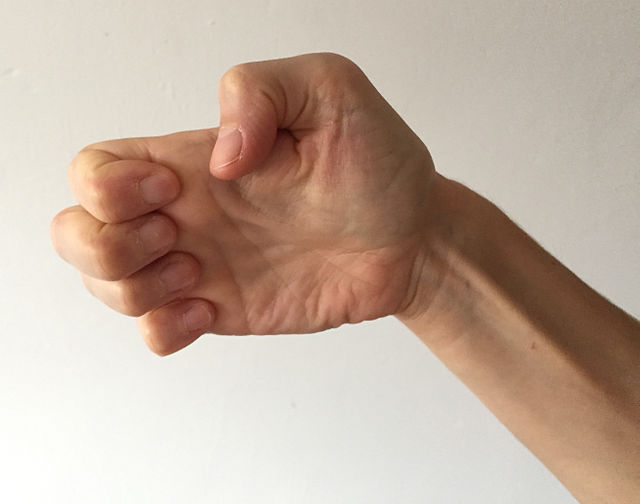
Authenticity, Succession, Self-Actualization:
The Multiple Meanings of Training in Hong Kong Martial Arts Cinema

https://en.wikipedia.org/wiki/Leopard_Kung_Fu
. . .
Webinar with Man-Fung Yip, Chair and Associate Professor of Film and Media Studies at the University of Oklahoma.
Moderator: Stephan Kory (LLC-Chinese)
March 23, 2022 at 7:00-8:30 pm.
Click here for the recording of this webinar:
https://youtu.be/1zS8-gXdZWo

Gong fu, the Cantonese term from which the kung fu film derives its name, has two different but related meanings: the (physical) effort required for completing a task; and the abilities and skills developed through effort and time. Central to the term, then, is a set of ideas—drill, practice, labor, empowerment—closely associated with the notion of training: to train is to acquire a skill or set of skills, and thus to empower one’s self through hard work and constant practice. In fact, training constitutes in many ways one of the most essential components in martial arts philosophy and practice: only those who train with patience and perseverance, who demonstrate dedication and great effort, can and will become a true martial arts master.
Considering its significance in the world of martial arts, it is hardly surprising that training has been a major motif in martial arts films. This is particularly true with the Shaolin kung fu films and action comedies that gained popularity in Hong Kong cinema of the mid- and late 1970s. Yet it is worth noting that the concept of training is pertinent not only at a textual level but also from an extra-textual perspective. Thus, even though training did not figure extensively within the films of Bruce Lee, it was actively invoked by critics and viewers alike and became an indispensable part in the mythologies surrounding the star’s powerful body/martial arts and his resolute drive to success.
Professor Yip’s goal in this presentation is to explore this training motif and shed light on the diverse meanings associated with it. Specifically, he focuses on the period of the late 1960s and 1970s—a period when a new crop of Hong Kong martial arts films pioneered by Shaw Brothers and later Golden Harvest came to prominence and dominated the local as well as regional market on its way to having a global-cultural cinematic presence—and frames his discussion around three broad concepts: authenticity, succession, and self-actualization. While the emphasis may vary, Professor Yip argues that these three aspects or dimensions of training have continued to shape recent martial arts and action films.

Man-Fung-Yip is Chair and Associate Professor of Film and Media Studies at the University of Oklahoma. He is author of Martial Arts Cinema and Hong Kong Modernity: Aesthetics, Representation, Circulation (HKU Press, 2017) and co-editor of American and Chinese-Language Cinemas: Examining Cultural Flows (Routledge, 2015) and The Cold War and Asian Cinemas (Routledge, 2019). His articles have been published in numerous edited volumes and in peer-reviewed journals such as Cinema Journal (now Journal of Cinema and Media Studies). His research and teaching interests focus on Chinese-language and East Asian film studies, theories of national and transnational cinema, the juncture of cinema, mass culture, and modernity, and the cinematic/cultural Cold War.
Discussion
Do you have any comments about this topic? Fill out the form below to join the discussion.
Comments
Professor Yip,
I really enjoyed the webinar and it was very informative. One of my questions to you was, how do you view the new movies that are centered around the use of martial arts, such as Shang Chi? Do you think there is a future for a mix of fantasy and traditional martial arts cinema as the younger audience has grown interests in other Asian art forms like anime and Kpop?
April 4, 2023
Professor Yip,
I found your presentation really fascinating. You briefly mentioned the use of training in American films as being more individualistic than early martial arts films. I was wondering if you've found any notable exceptions to this in modern cinema (American or otherwise).
April 20, 2023
Professor Yip,
What I find most intriguing about the discussion is the exploration of how martial arts cinema serves as a reflection of societal values and aspirations. The emphasis on authenticity and tradition in martial arts training resonates with broader themes of cultural heritage and identity, making it a compelling lens through which to examine the evolution of Hong Kong cinema. As I listened to the lecture and discussion about Hong Kong martial arts films, I also couldn't help but feel a deep personal resonance with the topic. My oldest son has a profound passion for karate and has found his home in its practice. Seeing his dedication and growth in the discipline has
given me a newfound appreciation for the rich traditions and philosophies embedded within martial arts. Moreover, my own experiences living in Okinawa for a few years, the birthplace of
karate, have further deepened my connection to this ancient art form. Witnessing firsthand the
culture and heritage surrounding karate in Okinawa has instilled in me a profound respect for the values of discipline, respect, and self-improvement that martial arts embody. It was fascinating to learn about the intersection of martial arts philosophy with broader societal dynamics, especially considering my personal ties to this topic through my son's passion and my time spent living in Okinawa. I am thankful for the opportunity to listen to your lecture and delve into the fascinating discussion. What do you think of Jackie Chan in relation to American films and his style of martial arts being more traditional than others?
April 25, 2024
Professor Yip,
I found your presentation to be informative and engaging. Are these motifs examined and studied by students in Hong Kong? Are the motifs found in early Hong Kong martial arts cinema present in the academic careers of modern students?
December 6, 2024